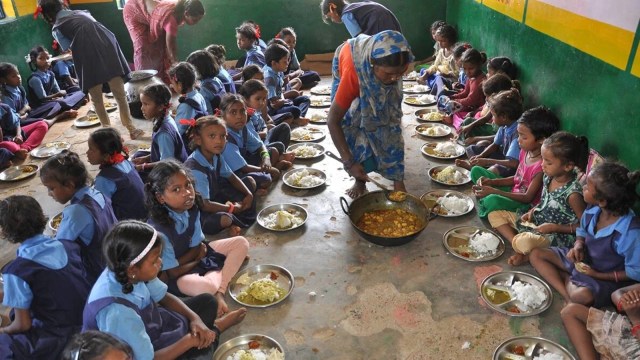Karnataka government stops distribution of chikkis in midday meals
Offered as an alternative to eggs, peanut chikki bars have been found to have high levels of unsaturated fats and sugars.
 The midday meal scheme serves approximately 5.5 million students in Karnataka, with about 30 per cent opting for chikkis or bananas as a supplement. (Express File Photo)
The midday meal scheme serves approximately 5.5 million students in Karnataka, with about 30 per cent opting for chikkis or bananas as a supplement. (Express File Photo)Karnataka has decided to discontinue the distribution of peanut chikki bars in government and aided schools as part of the midday meal programme. The government decision arises from concerns regarding the nutritional content and safety of the chikkis, which were offered as an alternative to eggs.
According to a government directive issued on February 17, various districts reported issues with the chikkis, including high levels of unsaturated fats and sugars, as well as storage and quality control problems. There were instances of improperly stored or expired chikkis being distributed, raising significant health concerns. A letter from the additional commissioner of school education in Dharwad highlighted cases where chikkis failed to meet prescribed standards and were inadequately stored, leading to potential contamination.
The midday meal scheme serves approximately 5.5 million students in Karnataka, with about 30 per cent opting for chikkis or bananas as a supplement.
The Department of School Education and Literacy has now instructed schools to provide only eggs and bananas as supplementary nutrition.
The Azim Premji Foundation has played a key role in the distribution of eggs, bananas, and chikkis in schools. While the state government funds this initiative twice a week, the foundation covers the remaining days.
Public health experts have suggested other alternatives to chikkis. Dr Sylvia Karpagam, a public health expert and researcher, recommends offering roasted and salted groundnuts to students.
“One hundred grams of roasted groundnuts contain substantial amounts of protein, healthy fats, and essential micronutrients like calcium, iron, and zinc,” she said.







